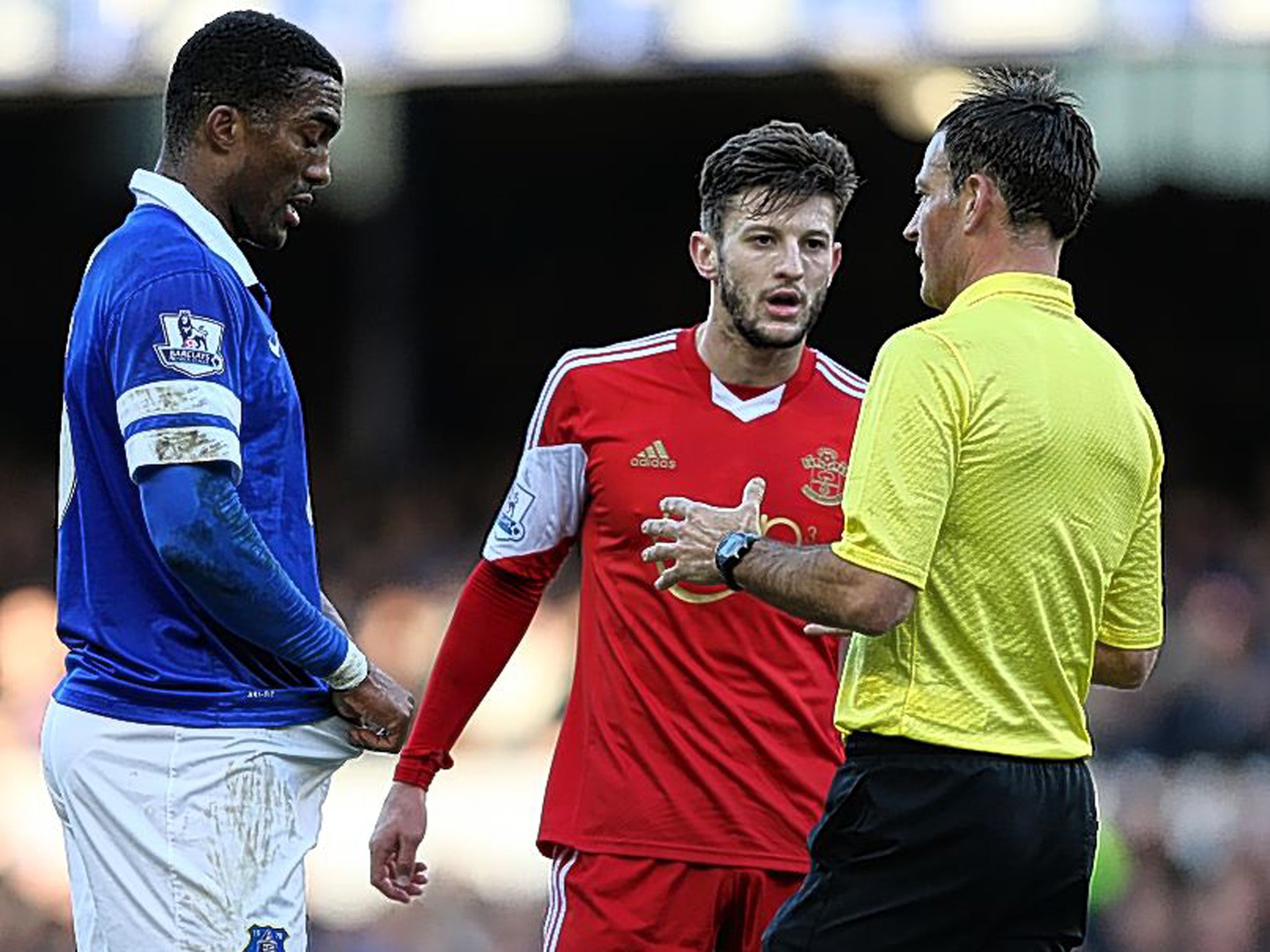The Last Word: Less outrage, more wisdom – a fat chance
Inept FA lack the ability to recalibrate the ‘fury’ and ‘anger’ inanely taking a sport to fever pitch

A Premier League footballer wears white robes, an Arabian Keffiyeh head-dress and an Osama Bin Laden mask at a New Year’s Eve party. He poses with fake dynamite, a bullet belt and his fiancée, a “glamour model” dressed as a Dalmatian.
At precisely 8.39pm on 31 December she posts two photographs of them in character on social media. The perfect storm duly breaks when the player, Jermaine Pennant, concedes an injury time penalty to deny his side, Stoke City, victory over Everton the following day.
“Outrage,” screams a headline. “Terrorist?” asks one cyberwarrior. “Not the smartest,” posits another. A third philosopher, who observes: “Damn! A lot of stupid ppl are gonna start talking shit lol” is uncannily prescient.
Welcome to Planet Football 2014, a strange world where there is an open invitation to take offence; controversies are manufactured in a moment; opinions are mandatory; regardless of logic or legitimacy; Twitter trolls, shock jocks and assorted spittle-flecked loons are on someone’s case 24/7.
Let’s call it the Joey Barton Syndrome. The volume of anger or alarm is directly proportionate to the lack of knowledge, wisdom or experience applied to the task. Thinking for oneself is strictly optional; following the herd is preferable. Bile should be secreted in 140 characters, if possible.
Players and fans are upset by referees, who infuriate managers, who are patronised by administrators, who are a universal target. It is a conga of the damned going nowhere fast.
Everyone in the shrill saga involving Mark Clattenburg, Adam Lallana and Southampton Football Club is, understandably, being judged as caricatures. Preening, perma-tanned celebrity referee bites back at precious, potty-mouthed Premier League millionaire. Club officials are “furious” (naturally) and demand FA action.
Right on cue, cranky conspiracy theorists suggest the spat was leaked to ruin Clattenburg’s chance of officiating at next summer’s World Cup finals. They do not offer a shred of evidence, but online chat rooms amplify their rantings.
The underlying issue, the unconscionable abuse directed at referees by players – who in turn have the right to feel aggrieved at their inability to respond to the invective to which they are subjected by spectators – is trivialised. This suits football’s powerbrokers, who routinely cower from the truth.
Debate, such as it is, is driven by all-pervading political correctness and a variety of conflicting agendas. The game is riddled by rapid-rebuttal units staffed by PR men who have watched too many episodes of West Wing. They conspire, consciously or otherwise, as serious issues become side issues.
Football has created a climate of fear that reflects and subtly encourages homophobia, which comes under the remit of the FA’s new Inclusion Advisory Board. The furore about board member Michael Johnson, who insists he has revised his view that homosexuality is “detestable”, has involved an unseemly scuffle for the moral high ground.
The FA invite much of the criticism to which they are subjected. They are inert and often inept, so it suits the political priorities of the League Managers’ Association to attack the “megaphone commentary” of former chairman David Bernstein. Similar tactics worked for the Premier League.
Much more nuanced issues, such as the quenelle gesture by Nicolas Anelka, require sophistication lacking in the disciplinary system. The FA became lost in the moral maze of the John Terry case, and have an unenviable task in dealing with such a sensitive subject as anti-Semitism.
Anelka’s advisers will doubtlessly argue that no-one at Upton Park, apart from the highly respected French journalist Philippe Auclair, instantly recognised the nature of the “celebration”. They will portray him as a potential victim of mob rule, regardless of the vileness of the quenelle’s origins and implications.
Football is at fever pitch and it is time to question where all this is leading. Strong views are valid, in context. Criticism is healthy provided it can be substantiated. The game needs greater transparency, calmness and recalibration. Will it get it?
No chance.
England system in danger of implosion
David Collier, the unimpressive ECB chief executive, sought safety in numbers by confirming his faith in England team director Andy Flower and captain Alastair Cook (below). They will, effectively, sink or swim together in the wake of this Ashes omnishambles. They represent the self-interest shaping a system in danger of implosion.
The formative principle was fine. Develop the England cricket team along the lines of Britain’s cycling squad. Create a climate of rigour and intelligence. Apply science, empower coaches and search for marginal gains.
It worked, until its success became corrosive. England’s National Performance Centre at Loughborough University became a political power base. Emerging players were confused by conflicting advice from specialists who derided the conventions of county cricket. Established players developed a sense of entitlement sustained by up to 18 support staff traipsing around Australia. Human nature being as it is, each seeks to justify their presence.
The result is a risible 82-page list of dietary demands, and evidence of lazy practice sessions. Players like Boyd Rankin are unfit for purpose. Flower seems over-wrought and Cook’s mental disintegration is complete. Failure is inevitable.
Wayne's World
Wolverhampton Wanderers supported Wayne Hennessey through two cruciate operations over 18 unproductive months. He is thought to have been paid around £15,000 a week. According to his manager, Kenny Jackett, the Wales goalkeeper, now fit, refused to play in Friday night’s defeat at Gillingham. That’s not merely unprofessional – it is unforgiveable.
Subscribe to Independent Premium to bookmark this article
Want to bookmark your favourite articles and stories to read or reference later? Start your Independent Premium subscription today.

Join our commenting forum
Join thought-provoking conversations, follow other Independent readers and see their replies